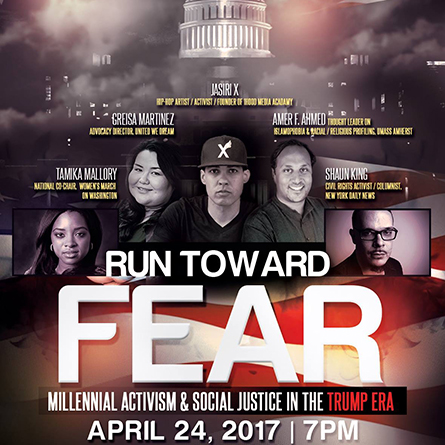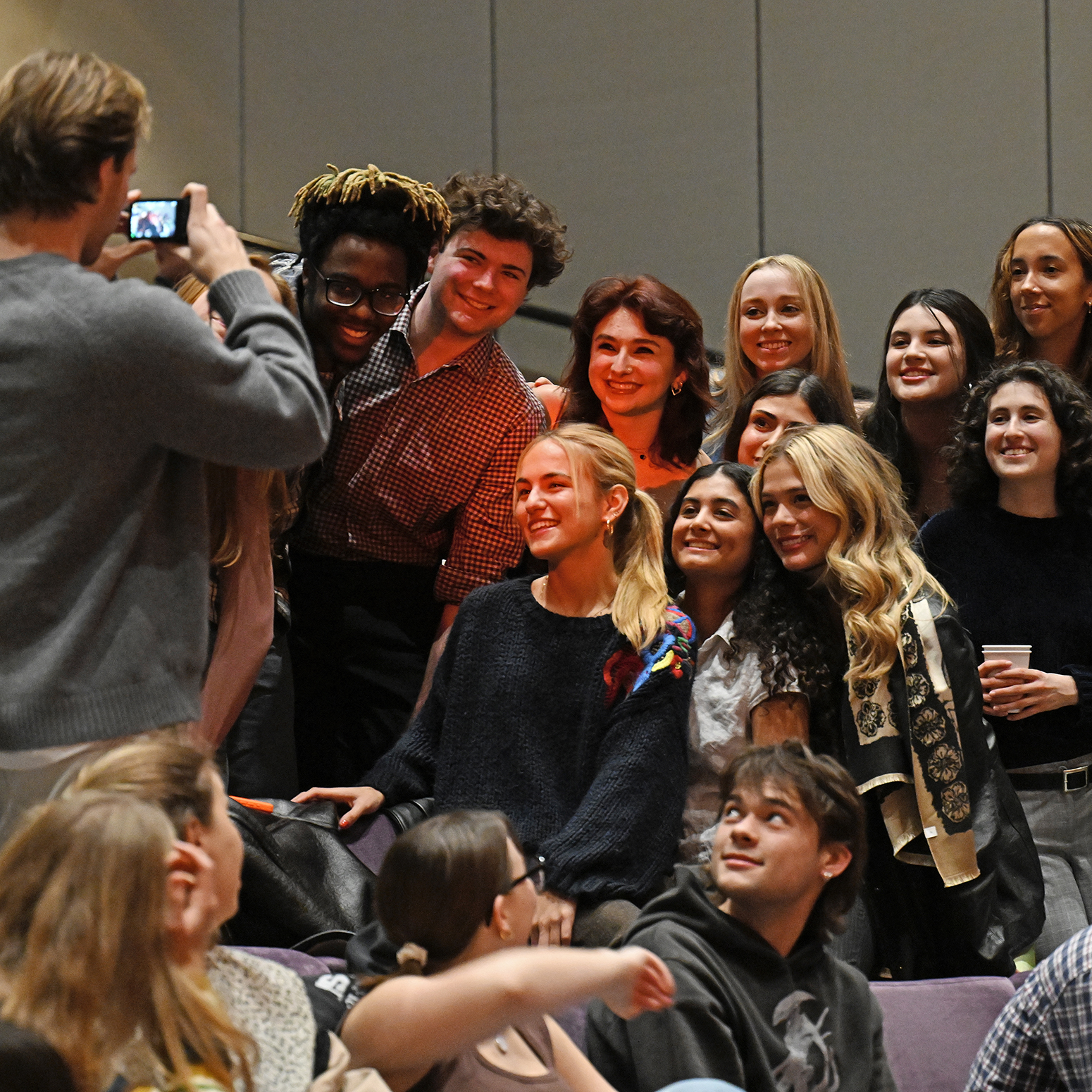
Run Toward Fear
A town-hall style discussion with leaders in social justice activism looked to inspire courage and action during divisive political times.

Yusef Salaam was a teenager in 1989 when President Donald Trump called for his death.
Salaam was one of five teens—known collectively as the Central Park Five—who were convicted, and later exonerated of the brutal rape of a woman jogging in Central Park. At the time of the crime, Trump released a full-page newspaper ad calling for the return of the death penalty for the accused.
Speaking at Connecticut College on April 24, Salaam was one of four leading social justice activists who offered insights and direction for enacting social change in the face of oppression and racism. The town-hall style discussion, “Run Toward Fear: Millennial Activism & Social Justice in the Trump Era,” was sponsored by the College’s Division of Institutional Equity and Inclusion in partnership with Rap Sessions and the Sankofa Lecture Series.
“The title of this event is fitting now, was fitting then, and is always with me,” said Salaam, who has publicly spoken out against Trump. “I can’t hide. I’m very visible, and so therefore I have to run toward fear.”
The event was held at the College Center at Crozier-Williams and drew a large audience from the campus and local community, including youth groups from New London and Waterbury, and students from the University of Massachusetts, Dartmouth.
“This is an evening of thought, provocation, analysis, intervention and action. We want action when we leave this room,” said the Rev. Claudia Highbaugh, dean of religious and spiritual life.
Panel members were Tamika Mallory, national co-chair of the Women’s March on Washington; Greisa Martinez, advocacy director at the United We Dream Network; and Amer F. Ahmed, director of intercultural teaching and faculty development at the University of Massachusetts, Amherst. Jasiri X, a hip-hop activist and scholar, moderated the discussion. Salaam filled in for Shaun King, senior justice writer at the New York Daily News.
Each panelist shared experiences of overcoming judgment, oppression and intimidation to emerge as vocal and informed leaders driving social change.
Martinez, an undocumented immigrant who advocates for immigrant rights, encouraged getting to know people who are different as a form of activism.
“When you look someone in the eye and you hear their story and ask for their truth, that is a revolutionary act,” she said. “So I’m asking you, are you doing the work of having revolutionary conversations?”
Mallory said social progress includes having more people come to terms with their own biases.
“We are speaking truth to power and we are unafraid to tell people, particularly white people, ‘You have helped us to get into this situation that we’re in right now,’” she said. “Unless you own that and say, ‘I am a central part of the problem and the solution,’ we will not get anywhere.”
Mallory also called for audience members to be unafraid of having difficult conversations around politics with family members. Making an impact across generations was one of the event’s outcomes, said B. Afeni McNeely Cobham, associate dean of institutional equity and inclusion.
“The town hall was an important moment for Connecticut College to be at the forefront of intergenerational dialogue about social change,” McNeely Cobham said. “To that end, the number of youth groups present last night was a testament to that pledge.”
April 27, 2017
